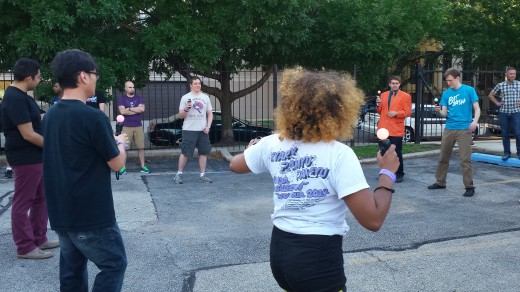0.
“Did you see that thing on Wow Insider?”
I look at something else.
“No.”
A large sigh of frustration came out of my boyfriend, eternally chagrined that his girlfriend didn’t read the blog he worked at.
1.
I don’t recall when I started reading Wow Insider, on and off, but I do remember when I might have - somewhere around 2006, when I was still blogging regularly at Livejournal. I was part of a community called wow_ladies, and it felt like every other week, something that we talked about in the community, among thousands of women (and hidden men) that something we argued about ended up on the front page of this news site. We’d always end up looking like a bunch of catty drama queens (sometimes we were, most of the time we weren’t) but I ended up sticking around to read Wow Insider from time to time - not necessarily because I needed tips but because for the first time in my internet career, I enjoyed seeing particular personalities at play.
Alex was a friend of mine at the time, that I knew from a forum we both frequented and also that he was my guild master. He eventually applied to Wow Insider and got the job. I was extremely proud because well, I had a giant crush on him but also I knew he was a really amazing writer with a knack for dry humor and an affable “voice.” The idea of writing about video games was something I didn’t even think people could do as a job, back then.
2.
I hung out with Alex for the second time “in real life” at Blizzcon 2008, both of our first time attending the convention. I was extremely nervous, having never been to California, and getting to meet his co-workers. I felt incredibly awkward, especially later as I sat in an odd tropical Disneyland restaurant as the staff of Wow Insider that were in attendance held for fans of the website. I did get to talk to, if my memory serves me correctly, people like Dan and Elizabeth and pick ineffectually at some nachos. There were a couple of die-hard people that showed up, profuse in their praise and overwhelmed to meet people they admired so much. It was a really touching difference from the rest of the bar, which was loud bros in Hawaiian shirts or overtired parents who just wanted fifteen seconds to suck down a Mai-Tai.
3.
There’s a phone ringing somewhere. It has to be 2 AM. It feels like 4 AM.
My boyfriend rolls over and looks at his phone. “Patch notes.”
He gets up and starts his computer.
4.
I was really sad when Christian Belt stopped writing Arcane Brilliance. He was the only person, save for maybe Lhivera, who made me feel like grasping mage mechanics was incredibly simple and did it with such flair and humor. When Stacey Landry got slotted into Belt’s old shoes, I didn’t feel like they were too big for her.
I was never a huge fan of the class columns but I always made sure to read the ones for mages. There was something comforting about it.
5.
“Oh yeah, my boyfriend is an editor at Wow Insider!”
“Adam?”
“Uh, no.”
6.
The first money I made from writing and understanding of games journalism came from Wow Insider. I had a few pieces picked up for the site via AOL’s Seed program, which would let all of their associated content outlets post ads for freelancers, and turn them in for money. Any time that Wow Insider was looking for Breakfast topics or even a couple of long-form pieces, I would throw something up there. I didn’t have a job at the time and we were single income. Making 20 bucks here and there was a big deal to me. I gained an appreciation for people’s work being valued and paid for.
But what I really learned was how to turn a piece out on a deadline, how to chop back fluff. I also learned, once Alex became an editor, what the demands of running a website really were, particularly one tied to a single game (or two.) The mechanisms of keeping a news outlet afloat is something a lot of people aren’t privy to. It’s often a question of money, dealing with public relations teams, and decisions that aren’t in your immediate control. Corporations are what make it possible to pay people (which I believe is crucial) but they also care about bottom lines and simplification and synergy and other words I barely understand. Corporations don’t see people, they see ad services. They don’t often recognize communities, they see revenue streams. They allocate funds but they don’t tally up actual costs.
The people at the top are often slumlords, who keep the whole building from collapsing but do little to make some place livable.
7.
Anne is talking about lore and it’s so fascinating.
We’re passing through rock formations somewhere in Utah and I feel like I’m on an alien planet, while a gentle tide of Anne describing what might be Warcraft’s next expansion is drifting through my ears. We’ve been on the road for a couple of hours now, heading towards Blizzcon. Alex is sitting in the front seat and I’m in the back, looking out the windows, occasionally leaning forward in-between them to catch what is being talked about.
It eventually begins to snow.
8.
I kept listening to the Wow Insider podcast even after I quit WoW.
9.
I think I’ll go read Wow Insider right now.


